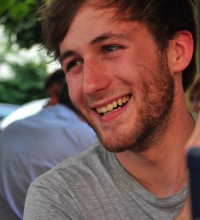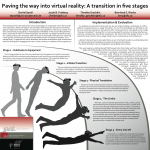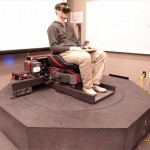
Position:
Alumnus (Research Intern: Visiting Student from Germany in 2012/2013)
Contact:
Affiliations:
Biography
While actually still in his undergraduate program of Cognitive Science at the lovely University of Osnabrueck in Germany, Daniel came to the iSpace Lab to finally get his hands dirty with some real scientific work, gather new skills and get an impression of the diverse work done at SIAT — and of course to learn how to cheat the mind and get away with it (all in the name of science, of course).
Projects
Transition into VR: TransLocation
How can we ease users' transition from the real surroundings into the virtual world? Many of today’s virtual reality (VR) setups are very much focused on technical aspects rather then the benefits of a coherent user experience. This work explores the idea of enhancing the VR experience with a transition phase. On a physical level, this transition offers the user a meaningful metaphor for en...
Spatial Updating With(out) Physical Motions?
How important are physical motions for effective spatial orientation in VR? Most virtual reality simulators have a serious flaw: Users tend to get easily lost and disoriented as they navigate. According to the prevailing opinion, this is because physical motion cues are absolutely required for staying oriented while moving. In this study, we investigated how physical motion cues contribute ...

